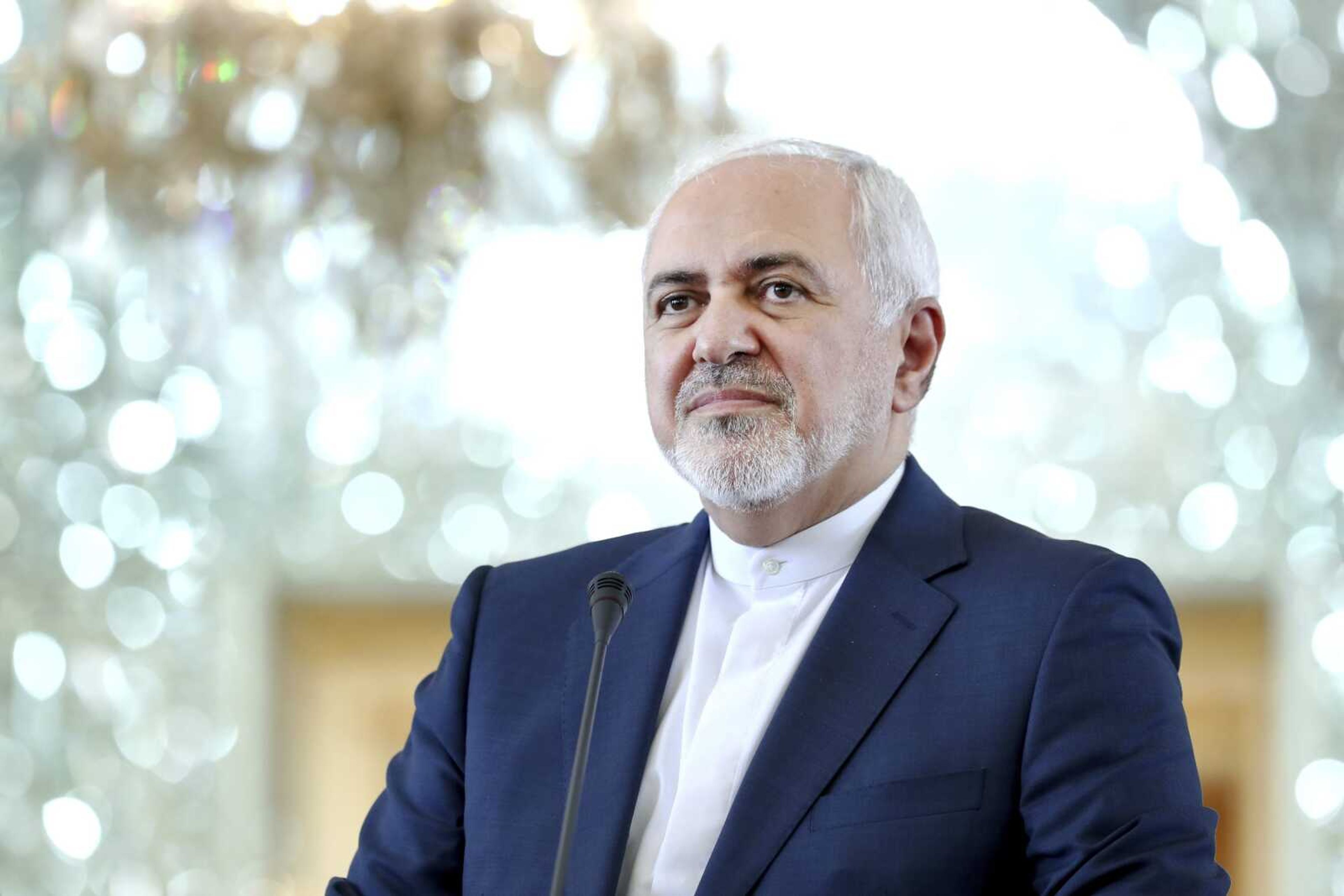Iran breaches uranium limit set by nuclear deal
TEHRAN, Iran -- Iran has broken the limit set on its stockpile of low-enriched uranium by its 2015 nuclear deal with world powers, international inspectors and Tehran said Monday, marking its first major departure from the unraveling agreement a year after the U.S. unilaterally withdrew from the accord...
TEHRAN, Iran -- Iran has broken the limit set on its stockpile of low-enriched uranium by its 2015 nuclear deal with world powers, international inspectors and Tehran said Monday, marking its first major departure from the unraveling agreement a year after the U.S. unilaterally withdrew from the accord.
The announcement by Iran's Foreign Minister Mohammad Javad Zarif and later confirmation by the U.N. nuclear watchdog puts new pressure on European nations trying to save the deal amid President Donald Trump's maximalist campaign targeting Tehran. Iran separately threatens to raise its uranium enrichment closer to weapons-grade levels Sunday if Europe fails to offer it a new deal.
It also further heightens tensions across the wider Middle East in the wake of Iran recently shooting down a U.S. military surveillance drone, mysterious attacks on oil tankers America and the Israelis blame on Tehran, and bomb-laden drone assaults by Yemen's Iranian-backed rebels targeting Saudi Arabia.
The European Union urged Iran to reverse course and Israeli Prime Minister Benjamin Netanyahu called the action "a significant step toward making a nuclear weapon." Iran long has insisted its nuclear program is for peaceful purposes, despite Western fears about it.
Though Trump pulled back from airstrikes targeting Iran after the U.S. drone was shot down, Washington has rushed an aircraft carrier strike group, nuclear-capable B-52 bombers and thousands of additional troops to the region. That's raised fears a miscalculation or further incidents could push the two sides into an armed conflict, some 40 years after the Islamic Revolution and the takeover of the U.S. Embassy in Tehran.
Speaking to journalists in Tehran, Zarif acknowledged Iran broke through the limit set by the accord.
"We had previously announced this, and we have said transparently what we are going to do," Zarif said. "We are going to act according to what we have announced, and we consider it our right reserved in the nuclear deal."
The U.N. nuclear watchdog, the International Atomic Energy Agency, later said its director general had informed officials it verified Monday that Iran had broken through the limit.
Under terms of the nuclear deal, Iran agreed to have less than 661 pounds of uranium enriched to a maximum of 3.67%. Previously, Iran enriched as high as 20%, which is a short technical step away from reaching weapons-grade levels. It also held up to 22,046 pounds of the higher-enriched uranium.
Neither Zarif nor the U.N. agency said how much uranium Iran now had on hand. Last week, an Iranian official in Vienna said Tehran was near the limit. Iran previously announced it had quadrupled its production of low-enriched uranium, which at under 3.67% is enough to power a nuclear reactor to create electricity, but is far below weapons-grade levels.
However, Iran could have chosen to mix the low-enriched uranium with raw uranium, diluting it and bringing it down under the cap. Pushing past the limit served as a notice to Europe, Zarif said.
The "actions of the Europeans have not been enough so the Islamic Republic will move ahead with its plans as it has previously announced," Zarif said. "We are in the process of doing our first phase of actions both on increasing our stockpile of enriched uranium as well as our heavy water reserves."
Breaking the stockpile limit by itself doesn't radically change the one year experts say Iran would need to have enough material for an atomic bomb, if it chooses to pursue one.
But by coupling an increasing stockpile with higher enrichment, it begins to close the one-year window and hamper any diplomatic efforts at saving the accord.
Connect with the Southeast Missourian Newsroom:
For corrections to this story or other insights for the editor, click here. To submit a letter to the editor, click here. To learn about the Southeast Missourian’s AI Policy, click here.










